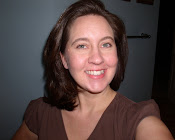In order to use the creative punctuation techniques effectively and appropriately, it is important to understand the correct use of punctuation. Although Lukeman has not written this as a rule book, he has written it with the expectation that the reader has a knowledge of the rules of punctuation.
As a creative writer, we are given license to stretch the rules of punctuation when it is intentional and done to achieve an artistic purpose - if the effect is seamless. If a reader stumbles over or stops at poorly punctuated sentences, the effect is failure; instead of artistic punctuation, the writer has shown poor punctuation, and the reader will probably put the book down if the pattern persists. This is the fine-line lesson on punctuation that Lukeman shares.
The book is exceptional and a must-have for the creative writer.
Today's Lesson: THE PERIOD (The Stop Sign)
Lukeman quotes on the period: "All other punctuation marks exist only to modify what lies between two periods - they are always restrained by it, and must act in context of it." "To employ it is to make a statement; to leave it out, equally so." "Its presence divides and its absence connects."
One of Lukeman's examples on the period:
Lukeman: "Consider the below example from [Rick Moody's] novel The Ice Storm that, ironically, displays his abundant use of the period:"
Example: No answering machines. And no call waiting. No Caller I.D. No compact disc recorders or laser discs or holography or cable television or MTV. No multiplex cinemas or word processors or laser printers or modems. No virtual reality.
Lukeman: "He could have chosen to separate these thoughts with merely a comma, or even a semicolon. By choosing to use periods, he allows each to sink in, more effectively cutting us off from the modern world."
By contrast, Lukeman gives the following example on the abundant use of the period:
Example: He talked to the manager. She recommended a book. He looked it through. He liked it. He bought it.
Lukeman: "Such a series of short sentences feels childlike - particularly if the content is banal, as it is here. Most writers will not resort to such extremes... ."
On a future blog, I will share a brief lesson from Lukeman on "the speed bump of the writing world", the comma.
Visit Noah Lukeman's Blog by linking through our sidebar or here: http://askaliteraryagent.blogspot.com/
Purchase the book by linking here: A Dash of Style: The Art and Mastery of Punctuation by Noah Lukeman
Post by: LWC Director Karen Aldridge. Visit her personal blog site at My Writing Loft.

















